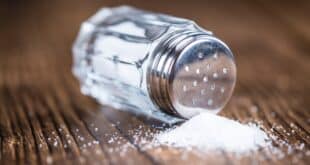Sweet desserts often take center stage in our celebrations. Weddings, birthdays, anniversaries and other special occasions are usually highlighted by cakes, pies, ice-cream, cookies and punch. While the occasional dessert in a meal does not impair one’s health, nutritional and health problems may arise when the celebration foods are emphasized in the regular, everyday diet.
High Sugar Diet
We are born with a natural inclination towards sweet-tasting foods. There are many foods which are endowed with natural sweetness for our enjoyment. Most fruits and even some vegetables (such as carrots, peas, corn, squash, and sweet potatoes) are noted for their supply of natural sugars. However, most people are generally not satisfied with the sweetness of natural foods. Instead, they desire processed foods enhanced with sweetening agents such as sucrose, corn syrup, or artificial sweeteners.
A high sugar diet can stimulate an increase in insulin release, which stimulates fat and cholesterol synthesis. Too many calories from sugar-rich foods can lead to obesity. Obese individuals are at greater risk of diabetes, cancer, and cardiovascular disease. The efficiency with which white blood cells function to defend the body against bacterial attack may also be impaired by sugar-rich diets.
What’s Inside?
The cereal companies do a good job of packaging wheat, rice and corn as candy! The high-sugar cereals normally contain 3-4 tsp. of sugar/oz. For some cereals, corn syrup and sugar supply 45 to 70 percent of the calories. But cereal is not the only food that is sugar-laden. A 12 oz. coke or soda pop contains 7-8 tsp. of sugar, a milkshake has up to 15 tsp., a glazed donut 6 tsp., a scoop of ice-cream 5 tsp., a candy bar 5 tsp., and an average piece of pie or cake typically contains 6 tsp. In addition, sugar is unnecessarily added to many processed foods such as peanut butter, canned vegetables, and crackers.
Sugar Substitutes and Soft Drinks
There are a number of sugar substitutes available, such as fructose, sorbitol, xylitol, and isomalt. These can be safely used and have a lower insulin demand than sucrose. Most of these substitutes occur naturally in fruits and vegetables. Moderation is important since large amounts of some of these substitutes can have a laxative effect. Sorbitol is the sweetener that is commonly used in “sugar-free” gums and candies.
Among the major sources of sugar in the American diet, soft drinks are the fastest growing food item. The average American consumes about nine to ten 12 oz. cans of soft drink every week. Diet soft drinks containing artificial sweeteners are often preferred by those trying to lose weight. This is because they contain essentially few, if any, calories. However, their use has not been shown to help in weight management, since overweight persons often compensate for the fewer calories by eating additional foods.
Artificial Sweeteners
The artificial sweeteners approved by the FDA include saccharin (which may increase the risk of bladder cancer), aspartame (Nutrasweet or Equal), acesulfame-K (Sunette, or Sweet One), and sucralose (excreted essentially unchanged). All of these are used in small amounts since they are 200 to 600 times sweeter than sucrose. Aspartame, which does not leave an aftertaste, is the most commonly used. Adverse effects of using aspartame have been reported in persons with phenylketonuria, a rare inborn error of metabolism. Furthermore, there have been some reports of allergic reactions to aspartame including headaches.
Rather than satisfying your craving for something sweet with a piece of high-calorie pie, cake or ice-cream, why not satisfy the sweet tooth with a juicy orange, a crisp apple, a handful of figs or dates, a tree-ripened mango, a banana, or a bowl full of fresh strawberries or grapes. Along with the natural sweetness comes a host of health promoting substances. Those include potassium, fiber, vitamin C, flavonoids, and carotenoids, without any cholesterol and very little fat. And the sugar in the fruit is more slowly absorbed, thus producing a lower insulin response.
If you liked this, you might also enjoy The Problem With Fructose | The Dangers of Too Much Sugar
Winston Craig writes from Michigan.
© 2002 - 2025, AnswersForMe.org. All rights reserved. Click here for content usage information. Answers for Me Support & encouragement for every-day life
Answers for Me Support & encouragement for every-day life



